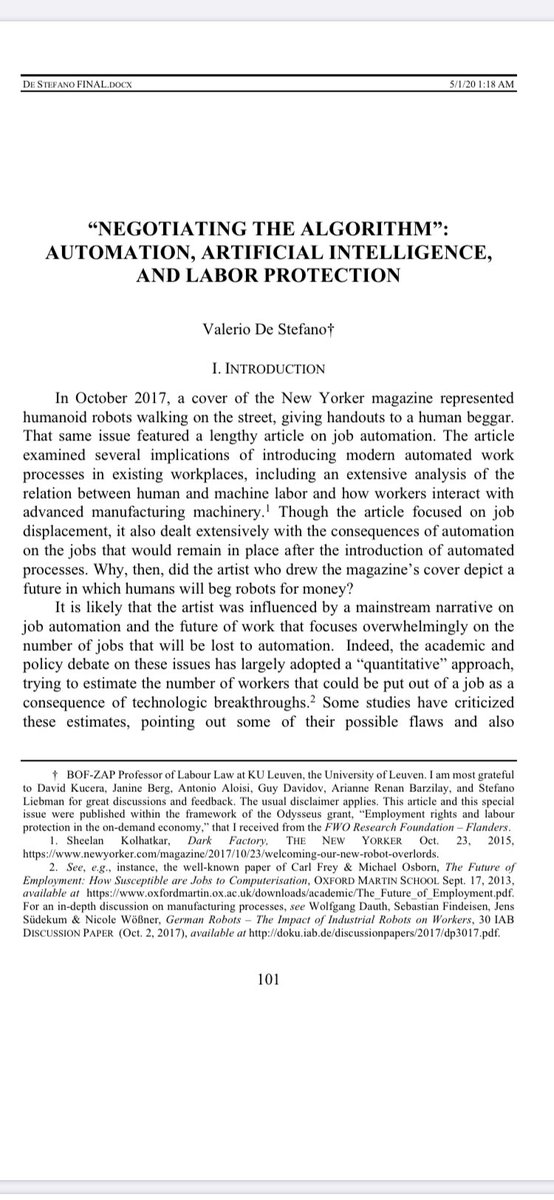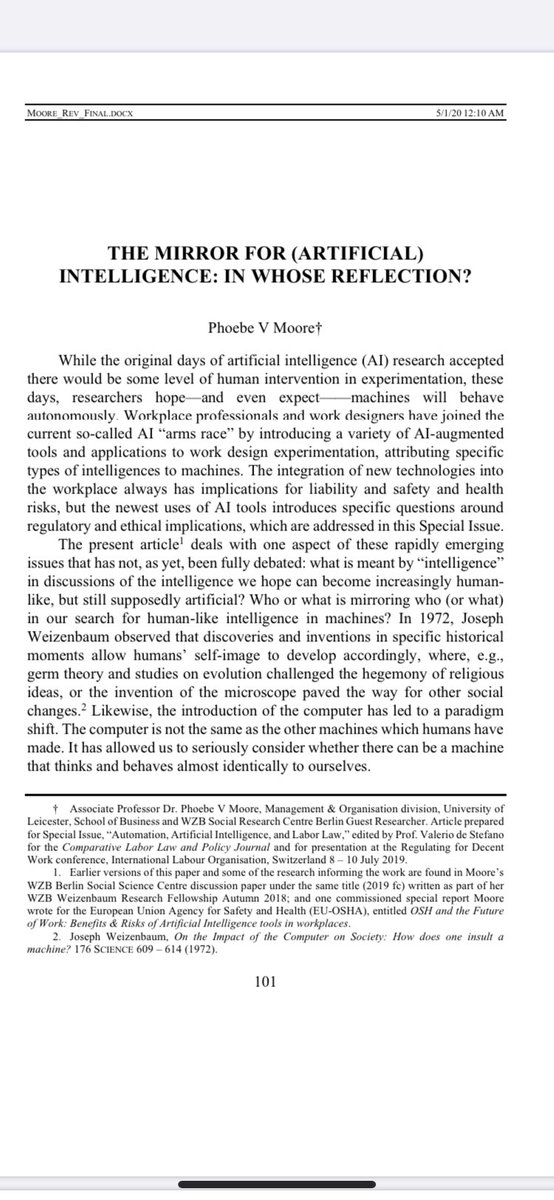
BREAKING FROM ITALY ON PLATFORM WORK. The office of the public prosecutor in Milan together with specialized law enforcement issued sanctions towards the biggest delivery platform amounting to up to 733 MILLION EURO (not a typo!), according to @repubblica google.com/amp/s/milano.r…
These sanctions are linked, according to them, to alleged violations of health and safety regulations. The investigation was prompted by occupational accidents some riders suffered in the past months
The prosecutor ordered these platforms to hire up to 60,000 riders as employees. According to the investigation, the platforms allegedly engage in illegal gangmastering enabled by artificial intelligence and algorithmic management.
This is huge but we don’t have much more information for the moment nor it is clear how the platforms will react to these allegations. Most likely they will challenge them, as it is normal (and their constitutionally protected right) for a criminal investigation. More to follow
UPDATE. It seems it is an initiative of the labour inspectorate, that also needed some backing from the prosecutor because some of the alleged health and safety offenses could potentially be of a criminal nature. All this warrants a lot of caution in telling the story
UPDATE @sole24ore reports that the authorities ordered to engage riders not as fully fledged employees but within the intermediate “parasubordinate” status, which implies better social and insurance protections than the current status of the riders ilsole24ore.com/art/deliveroo-…
UPDATE: it seems the authorities refer to a special category within the intermediate status of parasubordinate work, called “etero-organizzazione”. Workers in this category get all labor, employment & social protection unless a representative collective agreement says otherwise.
Sorry, didn’t mention the source: this is the article from @fattoquotidiano referring to parasubordinate work and to the 2019 judgment of the Italian Supreme Court whereby riders are defined as etero-organizzati ilfattoquotidiano.it/2021/02/24/pro…
And this is the press release from the national labour inspectorate that refers to the statutory provision on etero-organizzazione ispettorato.gov.it/it-it/notizie/…
• • •
Missing some Tweet in this thread? You can try to
force a refresh




